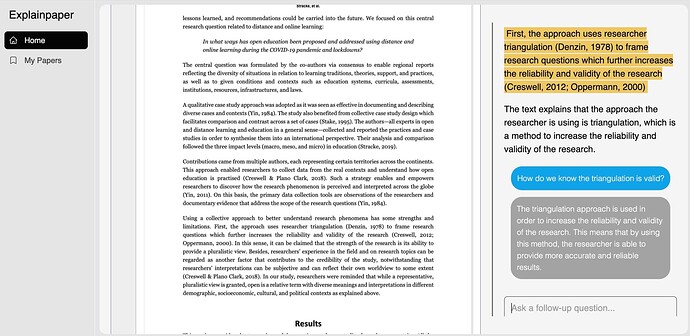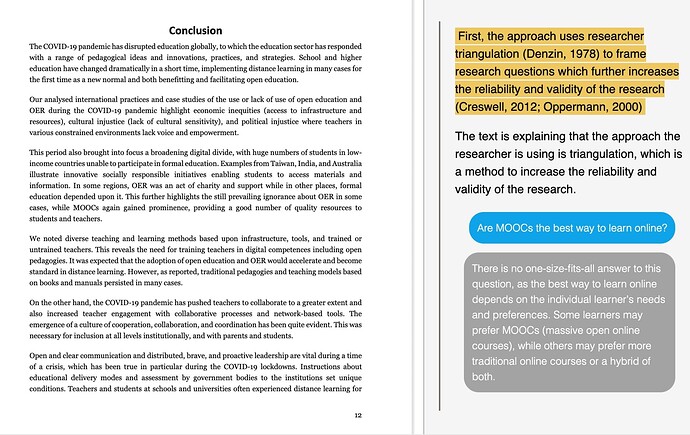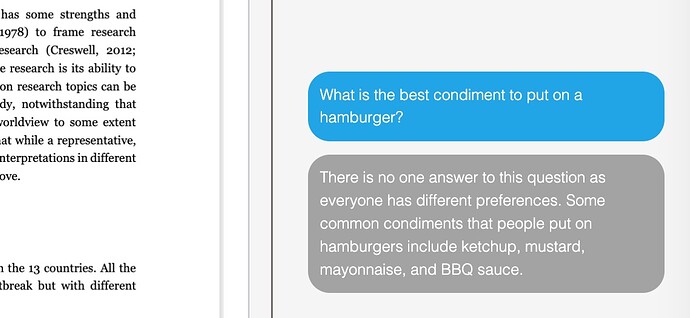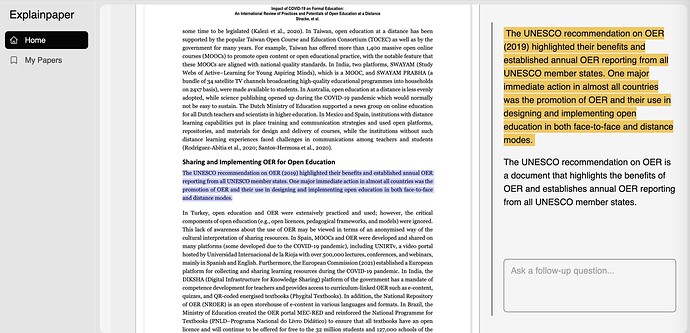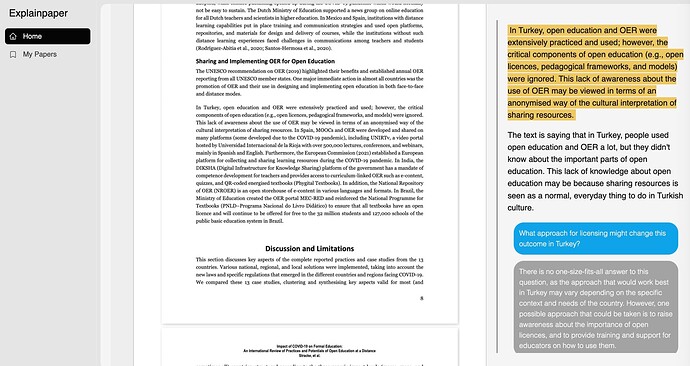In my ongoing dabbling to understand what some call AI (@poritzj sez no) I explored a bit of Elicit, a tool aimed at helping locate research papers with AI
In a similar vein comes Explain Paper, which has almost no information about itself besides “Upload a paper, highlight confusing text, get an explanation. A better way to read academic papers.”
But rather than tweeting and running, I like to try things out, first with their sample papers. From what I could see the typical use is highlighting a sentence in a paper, and let the site rephrase it in a more understandable manner. Which it did, following that, you can enter a followup question.
To give it a test, I uploaded a PDF of a recent IRODDL paper Impact of COVID-19 on Formal Education: An International Review of Practices and Potentials of Open Education at a Distance with many co-authors who are here in OEG Connect and presented this work at our conferences before publication.
Keep in mind, I just tried a few things to see what happened. I selected a sentence that describes the research method
First, the approach uses researcher triangulation (Denzin, 1978) to frame research
questions which further increases the reliability and validity of the research (Creswell, 2012; Oppermann, 2000)
and got a slightly rephrased explanation, and it was within seconds.
Then I asked a follow up question that was not explicit in the paper, “How do we know the triangulation method is valid?”
For fun, I tossed in this question: “Are MOOCs the best way to learn online?”
I noticed after a while, any question asked about “the best way” starts with “There is no one-size-fits-all answer to this question…”
I could not resist putting in the irrelevant question, “What is the best condiment to put on a hamburger?”
Again, a question to keep in mind- is this intelligence or is this a statistical response model?
Here is another summary for a sentence describing the UNESCO Recommendation on OER:
One might get their hankles up because this is rephrasing the papers sentence slightly different. Do we run for the proctoring software here?
I tried one more sentence in the paper about the summary of OER use on Turkey, along with a followup.
I find the way this is working interesting, and maybe I should have tried a more complex paper? One might say this paper is so well written no AI is needed!
Now I think I should try a paper that explains AI as I have not found anything tha explains it un understandable fashion that does not just get vague and black box mystery like.
Maybe someone else can give Explain Paper a try and see what kind of results you get.
